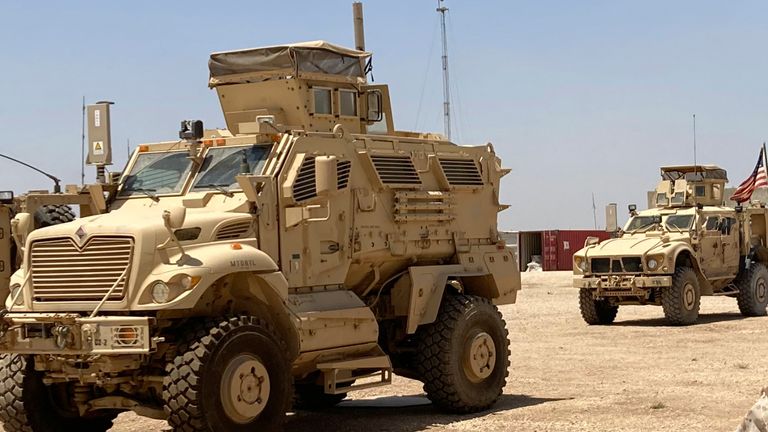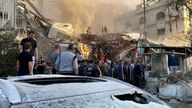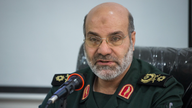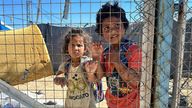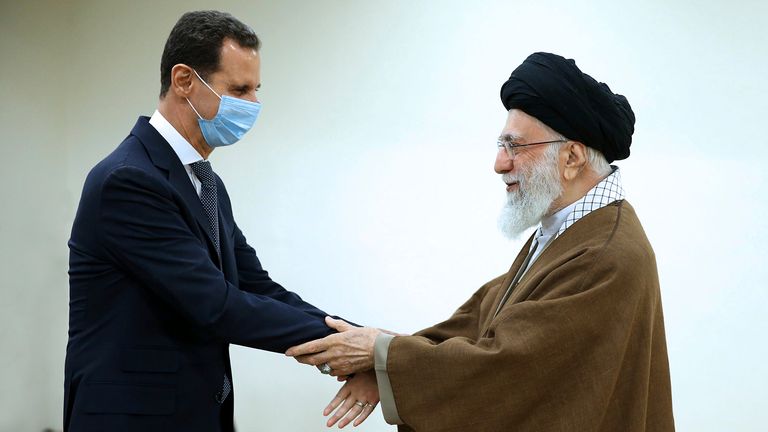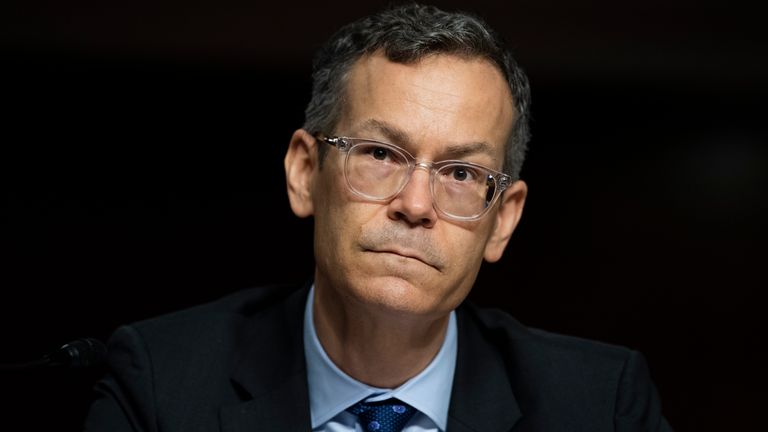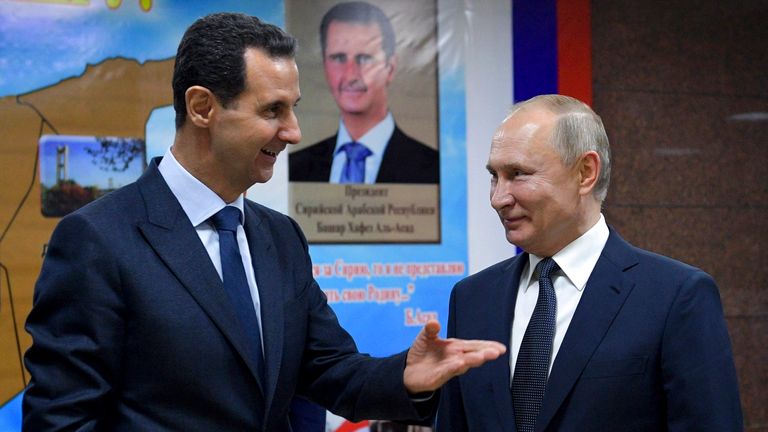Syria: Three US troops injured after rockets fired at western coalition bases
A series of rockets hit two bases used by American troops as "support sites" for the ongoing mission to defeat remnants of the so-called Islamic State caliphate, according to a statement by the US military's Central Command.
Thursday 25 August 2022 18:52, UK
Three American troops have been injured in Syria after rockets were fired at western coalition bases in the northeast of the country.
A series of rockets hit two bases used by American troops as "support sites" for the ongoing mission to defeat remnants of the so-called Islamic State caliphate, according to a statement by the US military's Central Command.
The three soldiers, who have not been named, are said to have suffered minor injuries.
The incident comes 24 hours after an American airstrike against Iranian-backed armed groups in the country.
It highlights an enduring and complex security situation in Syria involving the competing interests of the Americans, the Russians, the Iranians, the Turks, Syrian government forces and remaining elements of the Islamic State terror group (IS).
The United States is understood to have about 900 troops split between two bases in Kurdish controlled parts of northeastern Syria.
In 2020, former president Donald Trump said he would pull all American troops out of Syria, prompting accusations of an abandonment of the Kurds.
In reality, the American mission - to defeat IS and control the region's oil fields - continued through the remainder of the Trump presidency and has been maintained by President Joe Biden.
Much of Syria is now back in the hands of the country's president, Bashar al Assad, after more than a decade of civil war.
Read more:
Head of Islamic State in Syria killed in US drone strike
Assad meets UAE rulers in first visit to Arab nation since civil war began
Iranian-backed militia groups have helped the Syrian leader to retake and hold land captured by opposition groups since 2011.
The northeastern Rojava region of the country remains in pro-western Kurdish control and IS elements endure in remote areas along the border within Iraq.
US officials in Washington have routinely accused Iranian-backed proxy groups of targeting US troops in both Syria and Iraq.
Speaking at a news conference in Washington on Wednesday, Colin Kahl, under secretary of defence for policy, said: "We're not going to hesitate to defend ourselves.
"We're not going to tolerate attacks by Iran-backed forces on our forces anywhere in the world, to include in Syria, and we won't hesitate to protect ourselves and take additional measures as appropriate."
He was speaking before this latest rocket attack and responding to a series of US airstrikes on nine bunkers which the Americans claim were ammunition depots and logistic supply facilities.
In a hint of the complex geo-politics, American officials confirmed they had informed the Russian military before carrying out the airstrikes using established "deconfliction lines".
Russia has a significant military footprint in Syria, including a naval base in the coastal city of Tartus, and has been instrumental, along with Iran, in helping President Assad regain control of the country.
Tit-for-tat strikes between America and Iranian proxies have intensified over the past week and come at a time when American and European diplomats are poised to revive a deal with Iran designed to prevent it from developing a nuclear weapon.
The 2015 Joint Comprehensive Plan of Action (JCPOA) nuclear non-proliferation deal collapsed in 2018 when it was abandoned by the Trump administration.
The Biden administration has sought to revive it, believing in its ability to place trust in nuclear inspections. A new deal is thought to be close, much to the angst of Israel and some Gulf Arab nations who say Iran cannot be trusted.
The signatories of the original 2015 deal, including the United States under President Obama, insisted on separating the issue of Iran's enrichment programme with its behaviour regionally, a move heavily criticised by Israel and gulf Arab nations.
President Biden has used his military's airstrikes this week to demonstrate that while he seeks diplomacy with Iran, he won't hesitate to use force against Iranian interests if required.

